Congratulations to Dr. Karim Khaled on the latest paper from his BU Ph.D. research. This article ‘Ethical Issues and Challenges Regarding the Use of Mental Health Questionnaires in Public Health Nutrition Research‘ [1] was published earlier this month in the international journal Nutrients.
Karim is currently based at Birmingham City University, and the paper is co-authored with his Ph.D. supervisors Dr. Fotini Tsofliou and Prof. Vanora Hundley in BU’s Faculty of Health & Social Sciences. 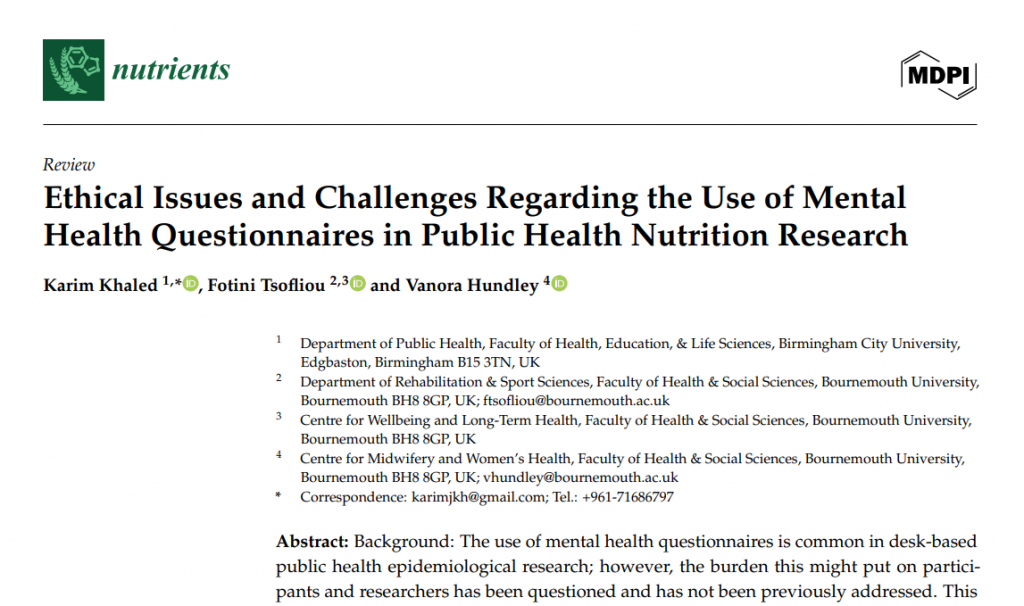 This paper addresses the potential burden of completing mental health questionnaires on (a) participants and (b) researchers. This examines ethical issues and challenges of using such scales and questionnaires, providing a real-life case study where the Beck’s Depression Inventory-II was used.
This paper addresses the potential burden of completing mental health questionnaires on (a) participants and (b) researchers. This examines ethical issues and challenges of using such scales and questionnaires, providing a real-life case study where the Beck’s Depression Inventory-II was used.
The ethical considerations raised by using mental health questionnaires in epidemiological research include incorrectly identifying participants as depressed or non-depressed; inability to identify participants for referral procedures due to the anonymous nature of some research studies; an increased burden on participants through depression and suicidal questions; and the high expectation of participants towards the researcher.  Preventative measures to reduce these challenges include choosing appropriate cut-off scores for correctly identifying participants; highlighting whether mental health questionnaires used may elicit negative emotional or psychological reactions related to suicide ideation; specifying the criteria for referral to clinical services; detailing the intended referral processes; including approaches where the researcher directly connects participants with a psychological service provider; and including a passive referral method such as contact details for participants to initiate their own referrals to clinical care. The authors offer a guide for researchers aiming to collect data on mental health through questionnaires, and they conclude that ethical challenges should be considered and reviewed at all stages of the research project.
Preventative measures to reduce these challenges include choosing appropriate cut-off scores for correctly identifying participants; highlighting whether mental health questionnaires used may elicit negative emotional or psychological reactions related to suicide ideation; specifying the criteria for referral to clinical services; detailing the intended referral processes; including approaches where the researcher directly connects participants with a psychological service provider; and including a passive referral method such as contact details for participants to initiate their own referrals to clinical care. The authors offer a guide for researchers aiming to collect data on mental health through questionnaires, and they conclude that ethical challenges should be considered and reviewed at all stages of the research project.
Well done!
Prof. Edwin van Teijlingen

Reference:
- Khaled, K., Tsofliou, F., Hundley, V. (2025). Ethical Issues and Challenges Regarding the Use of Mental Health Questionnaires in Public Health Nutrition Research Nutrients 17 (4): 715. https://doi.org/10.3390/nu17040715
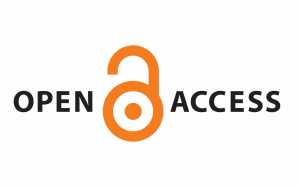 The REF (
The REF (


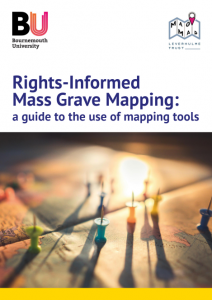

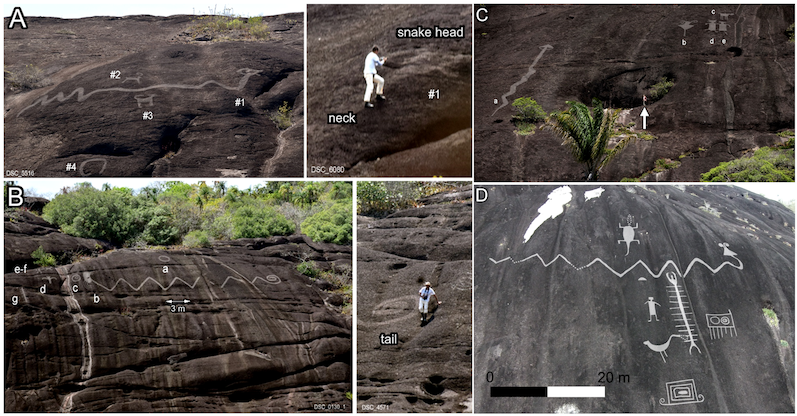

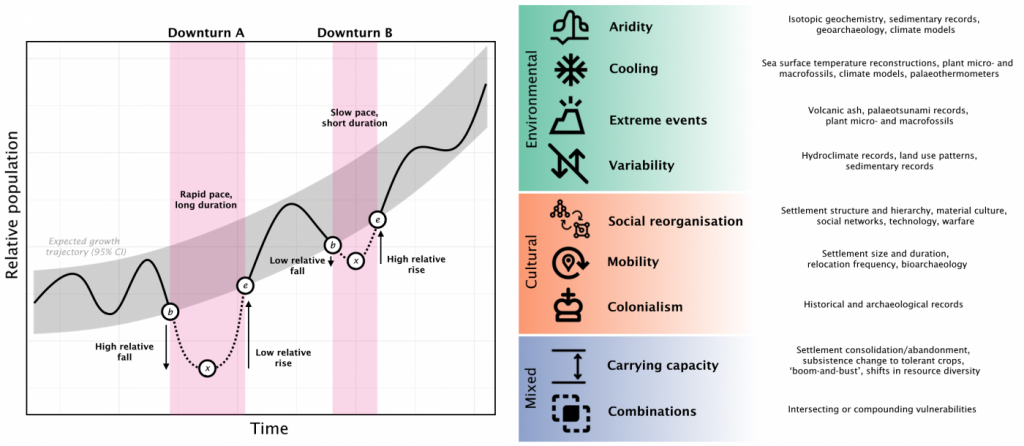

 Since the introduction of workstreams in October 2022, the Transformation team and the Research Development and Support (RDS) team have been working collaboratively on three workstreams to improve BU’s Research & Knowledge Exchange (RKE) service provision. Feedback from the academic community at BU suggested there is a need to reduce bureaucracy and to streamline processes. As part of these efforts, and with the support of IT Services, we have reviewed and improved the Intention to Bid (ItB) form. The form has been developed and tested with input from the academic community and the Business and Knowledge Exchange Managers.
Since the introduction of workstreams in October 2022, the Transformation team and the Research Development and Support (RDS) team have been working collaboratively on three workstreams to improve BU’s Research & Knowledge Exchange (RKE) service provision. Feedback from the academic community at BU suggested there is a need to reduce bureaucracy and to streamline processes. As part of these efforts, and with the support of IT Services, we have reviewed and improved the Intention to Bid (ItB) form. The form has been developed and tested with input from the academic community and the Business and Knowledge Exchange Managers.  We have developed some
We have developed some 
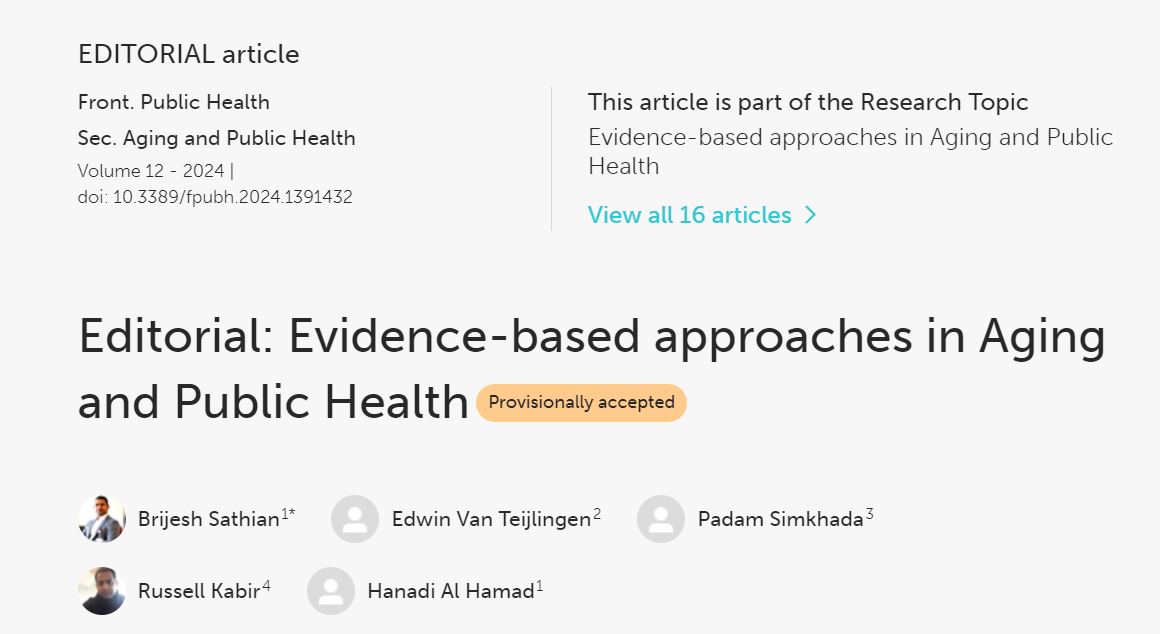

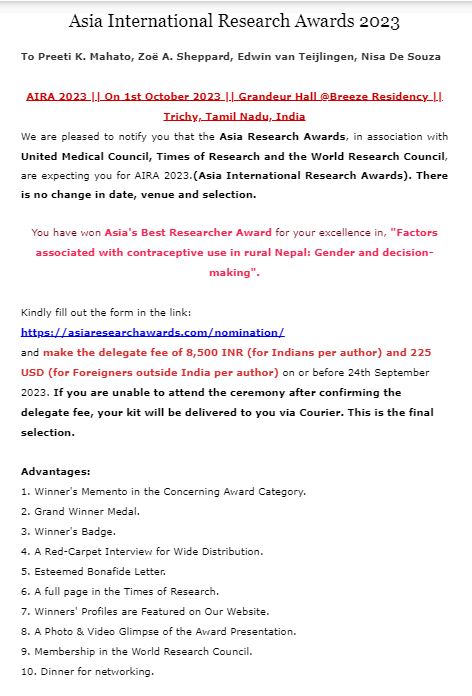











 BU attendance at third annual GCPHR meeting in June
BU attendance at third annual GCPHR meeting in June Interactive Tangible and Intangible Heritage Applications – BU student work featured in new book chapter
Interactive Tangible and Intangible Heritage Applications – BU student work featured in new book chapter Second NIHR MIHERC meeting in Bournemouth this week
Second NIHR MIHERC meeting in Bournemouth this week MSCA Postdoctoral Fellowships 2025 Call
MSCA Postdoctoral Fellowships 2025 Call ERC Advanced Grant 2025 Webinar
ERC Advanced Grant 2025 Webinar Horizon Europe Work Programme 2025 Published
Horizon Europe Work Programme 2025 Published Horizon Europe 2025 Work Programme pre-Published
Horizon Europe 2025 Work Programme pre-Published Update on UKRO services
Update on UKRO services European research project exploring use of ‘virtual twins’ to better manage metabolic associated fatty liver disease
European research project exploring use of ‘virtual twins’ to better manage metabolic associated fatty liver disease